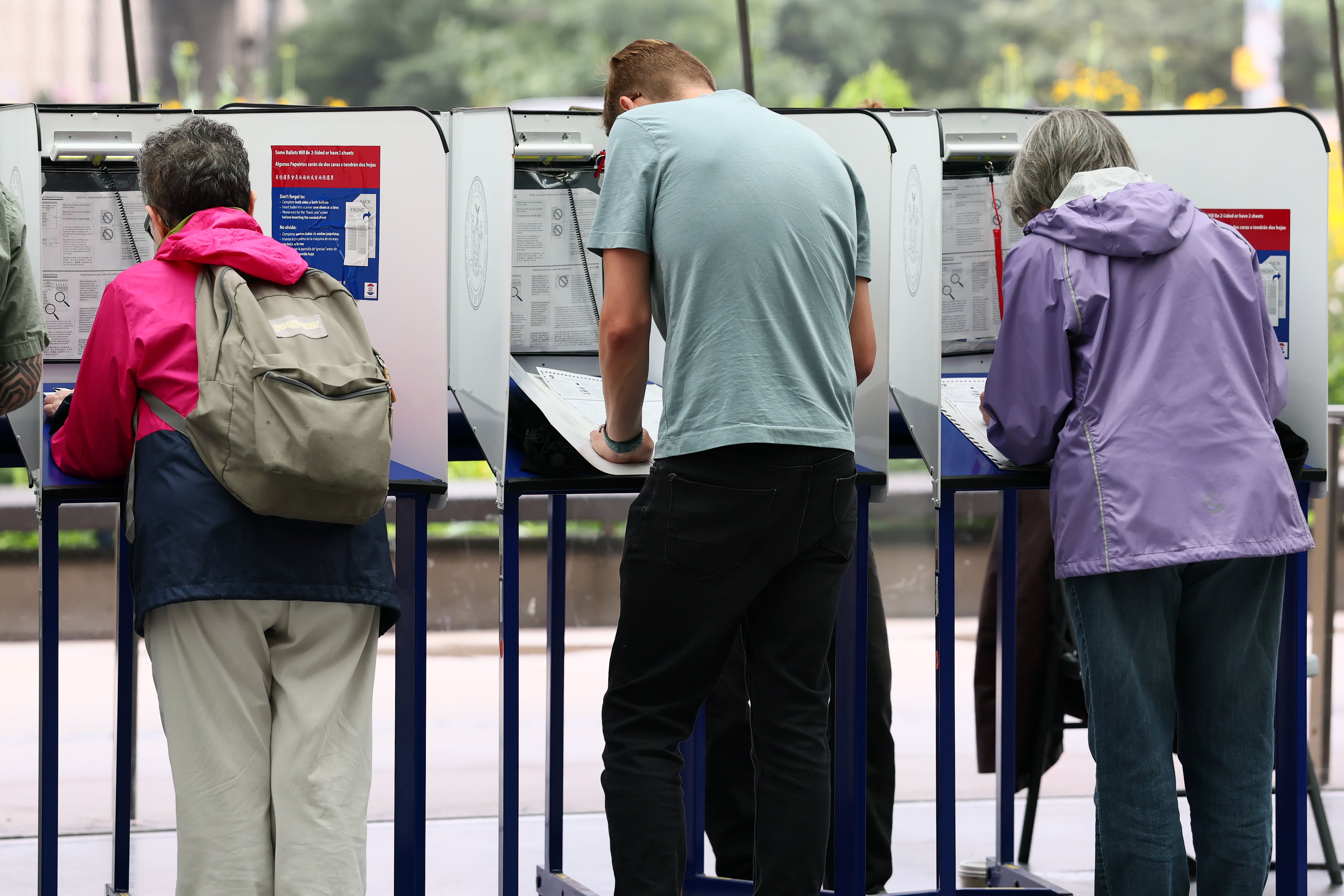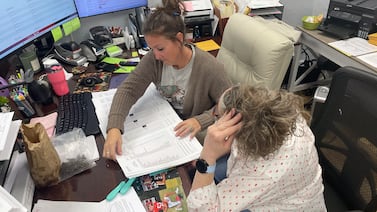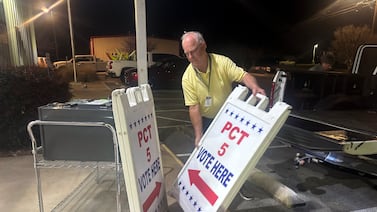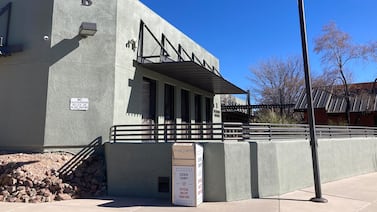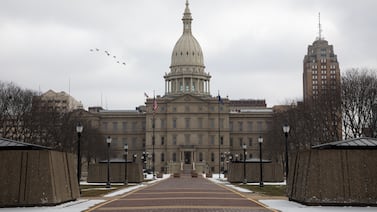Votebeat is a nonprofit news organization reporting on voting access and election administration across the U.S. Sign up for our free weekly newsletter to get the latest.
Most Americans are accustomed to a fairly simple election system — a plurality system — where voters pick a single candidate on the ballot, and whoever gets the most votes wins. But a growing number of jurisdictions are adopting or considering a different system called ranked choice voting.
In this system, voters rank the candidates on the ballot according to preference, and the rankings help determine the winner.
New York City has used ranked choice voting for local primary elections since 2021. Alaska and Maine use ranked choice voting for statewide offices, and several counties and municipalities across the country use it for specific offices. This year, an advocacy group in Michigan is working to get a referendum on the 2026 ballot for a constitutional amendment to allow ranked choice voting.
But ranked choice voting is still a new, unfamiliar concept for most Americans, and it involves a counting process that’s more complicated than in a plurality election.
Votebeat is working on a project to better explain how ranked choice voting works, why people support or oppose it, and what to expect if your state, county, or municipality adopts it.
But first, we want to know what you’re wondering about when it comes to ranked choice voting. What parts are unclear to you? Do you have questions about a specific recent election that used ranked choice voting, like New York City’s Democratic primary?
Use the form below to tell us what you want to know, so we can get answers to your questions. You can also reach out to us at community@votebeat.org.
If you don’t see the form, head to this link to open it in a new window.

